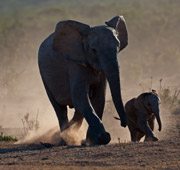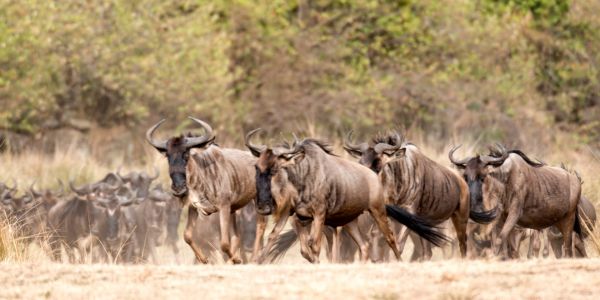Articles
SAFETY QUESTIONS WHILE ON SAFARI
Going on safari in search of the big five can be one of the most exciting and memorable activity on can ever do.
 To then actually be close to and see these magnificent animals can bring about different emotions to different people.
To then actually be close to and see these magnificent animals can bring about different emotions to different people.
The recent attack by a bull elephant in musth at Kruger National Park has been doing the rounds on the social media circuit and news outlets. The actual video footage has now been removed. But this latest incident has enraged animal rights activists after the elephant was put down, through no fault of his own. Luckily this couple was only injured, but had they followed the rules, the elephant would still be alive and they would have been safe and sound. So what safety measures should you take while on safari? Here are a few things to keep in mind, the most important one is that we as tourists, are in the domain of the wild animals, thus it is we who should show some respect to the wildlife, no matter where we are.
So do you research, ask your tour company questions about their guides and drivers and about their cars. What is in place in case of emergencies? It is up to you to be responsible before jumping into the car and driving off with untrained, inexperienced guides that have no way to request assistance when something goes wrong.
If you are on a self-drive safari, your tour operator should have briefed you on the safety issues while inside the park and let common sense rule when in doubt. Some experts have suggested you follow these basic rules:
- At all times, remember that you are in the animals' environment and space, and respect that.
- Never drive closer than 20 meters (65 feet) of large animals, elephant and buffalo in particular.
- Never sound the horn, rev the engine or make noises at animals to attract their attention, or to get them to look up to get better photos. Remember, you are in their home turf.
- Be especially careful approaching solitary male elephants and buffalo as well as animals with young ones.
- If an animal looks stressed or injured, give it a wide berth.
- Animals have a very keen sense of smell, so avoid certain types of fruity smells, e.g., citrus.






